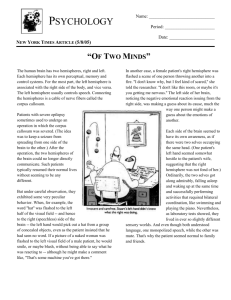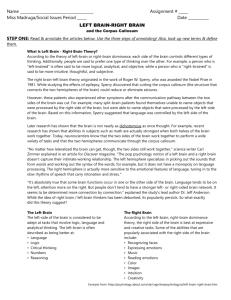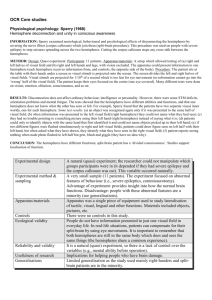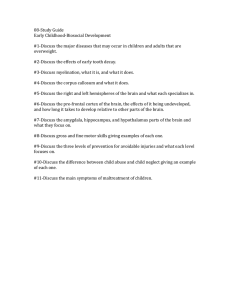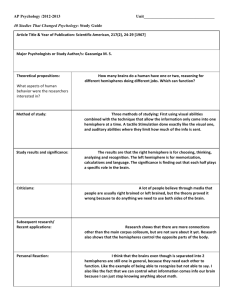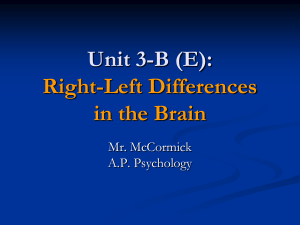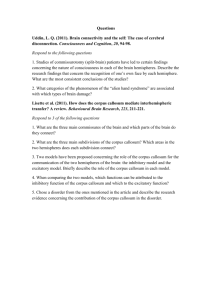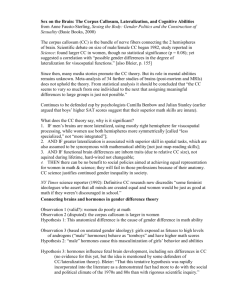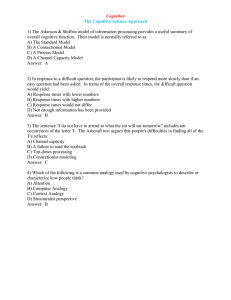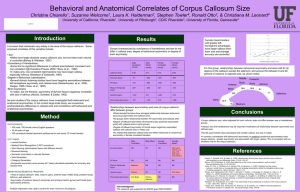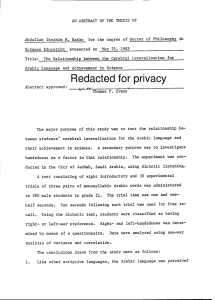Right and Left Brain
advertisement
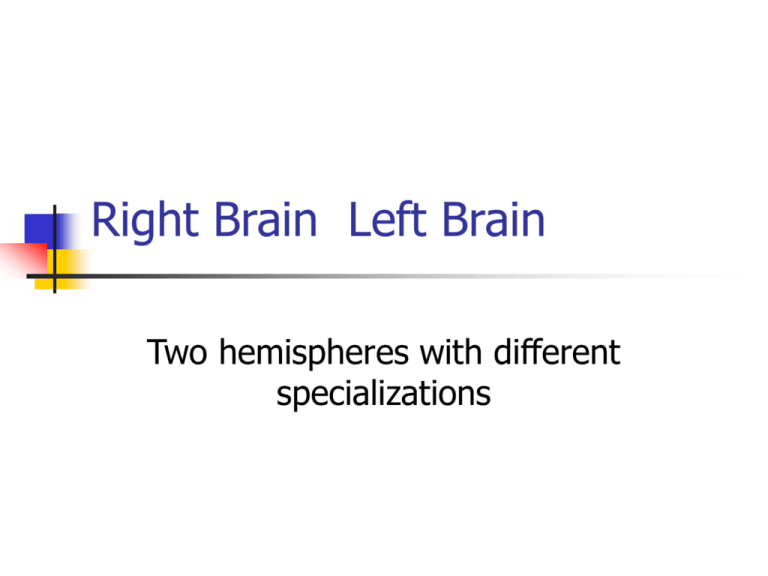
Right Brain Left Brain Two hemispheres with different specializations Cortical similarities KW 14-3 Contralateral control over movement and skin sencses Sensory Motor Integration KW 10-2 Visual Fields Also contralateral sensation Right visual world: left brain Left visual world: right brain KW 14-17 Dorsal and Ventral Streams KW p.535 Hemispheric differences Auditory Cortex KW 9-12 Processing Music KW 9-24 Parietal lobe Assymetry Parietal larger KW 14-14 Temporal larger Parietal lobe damage Right: drawings, puzzles, maps Left: language, naming objects, Copy movements KW 14-15 KW 14-16 Apraxia Spatial Cognition Same figure but different orientation? KW 14-4 Yes Spatial Orientation Which block is the same as one of left? KW 14-5 a Cognitive Tasks 1 correct Men more likely to Pick correct response KW 14-21 Cognitive Tasks 2 KW 14-21 Cognitive Tasks 3 KW 14-21 Cognitive Tasks 4 KW 14-21 Connecting Link between Hemispheres Figure 14.1 Two views of the corpus callosum The corpus callosum is a large set of axons conveying information between the two hemispheres. (a) A sagittal section through the human brain. (b) A dissection (viewed from above) in which gray matter has been removed to expose the corpus callosum. Visual Connections to the Hemispheres Visual Field-what is visible at any moment Right visual field-->left hemisphere Left visual field-->right hemisphere Cutting the Corpus Callosum Sometimes done to treat severe epilepsy Behavior is abnormal only when sensory stimuli are limited to one side of the body Split Brain Task 1 KW 14-18 Split Brain Task 2 Use left hand to find object KW 14-19 Split Brain Task 3 Each hemisphere is capable of responding independently KW 14-19 Visuospacial Processing KW 14-20 Split Hemispheres Competition Soon after surgery you may see competition between activities on the two sides of the body Hemispheric Specialization Left Speech Movement sequencing Detail-oriented Right Emotional content of speech Recognizes emotions in others Expresses fear and anger Spatial Relationships Music perception Animation Development of Lateralization and Handedness Anatomical Differences between the Hemispheres Plenum temporale in left hemisphere larger Corpus Callosum is not fully developed at birth Handedness does not dramatically affect lateralization Most left-handed people have left-hemisphere or mixed dominance for speech Speech and Handedness First communication most likely hand signals Right hand preferred most humans Right hand controlled by left brain Signal language tied to spoken language Hand gestures to phonemes Communication is left hemisphere task Brain sculpted by experience Left hemisphere for speech Right for spatial tasks Both hemispheres active Can be resculpted if needed Brain Science has come along way Still many mysteries to be solved Treaments for brain diseases Understanding the causes Hope course has given you the knowledge to follow these developments
